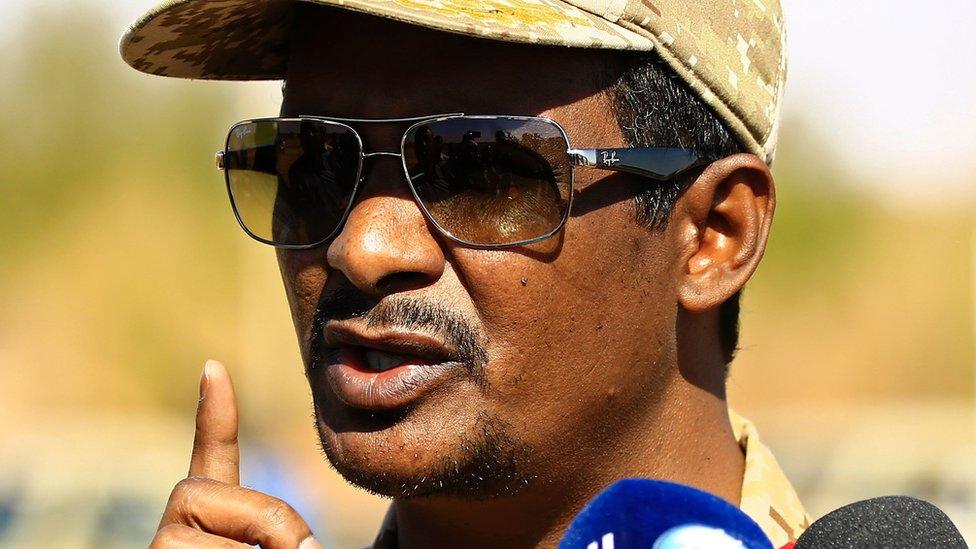Sudan: Fighting between rival forces hits residential areas
- Published
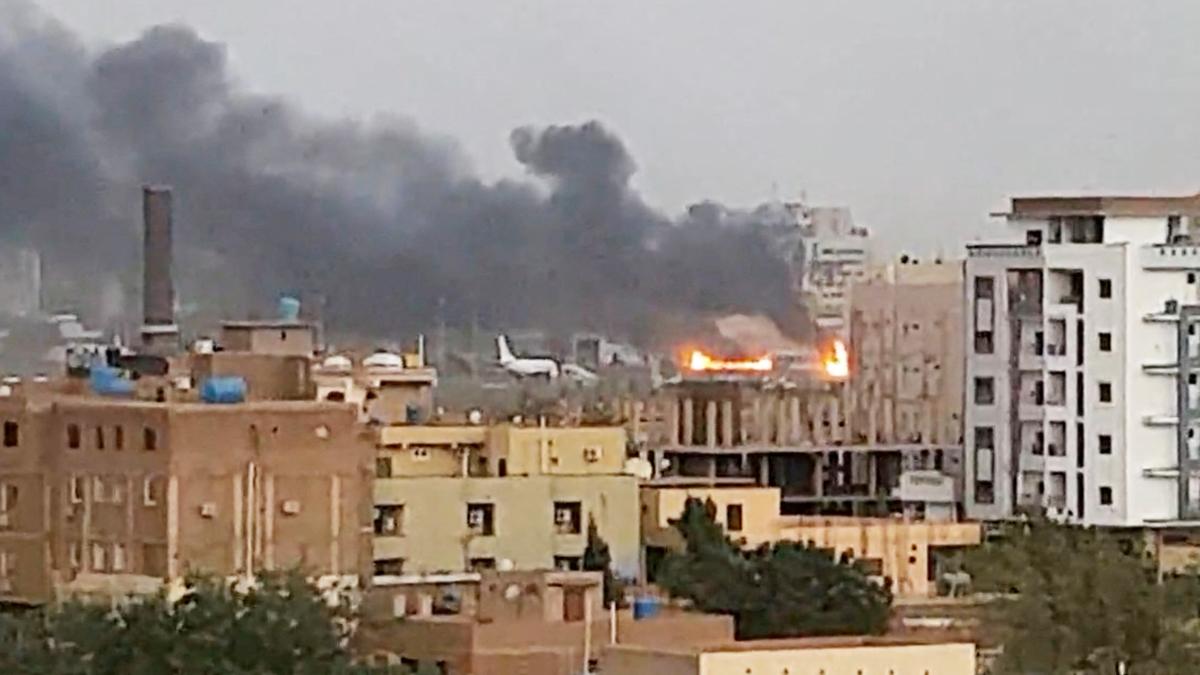
Smoke rises from the tarmac at Khartoum International Airport, which is close to the city centre
Residents in Sudan's capital Khartoum have found themselves trapped in a war zone. Fighter jets and attack helicopters have been flying low overhead, as gun battles and bombings shake the city's streets.
We have combed through dozens of pieces of video footage from the city and spoken to residents to find out what life has been like as the fighting - between Sudan's army and the paramilitary group the Rapid Support Forces (RSF) - has intensified.
The threat to civilians is magnified by the particular geography of Khartoum. Key strategic sites which are being targeted, such as military buildings, are close to residential areas.
Footage broadcast live on a Riyad-based news channel this morning - and verified by the BBC - captured one strike in part of the city where the Sudanese military is based.
Explosion near Air Force headquarters in Khartoum
The site of this big explosion - which we located by matching the bridge seen in the video to Google maps - is about 300 metres from the Sudanese Air Force headquarters, and about 500m from the General Command of the Sudanese Armed Forces.
Both are close to the airport and a residential area, with several schools and hospitals nearby.
One woman we spoke to who lives near the airport said: "While we are ok, the situation is not so good for my aunts and uncles who live in a different part of the neighbourhood... they see planes bombing in front of their house. One of their cars was burnt to a crisp."
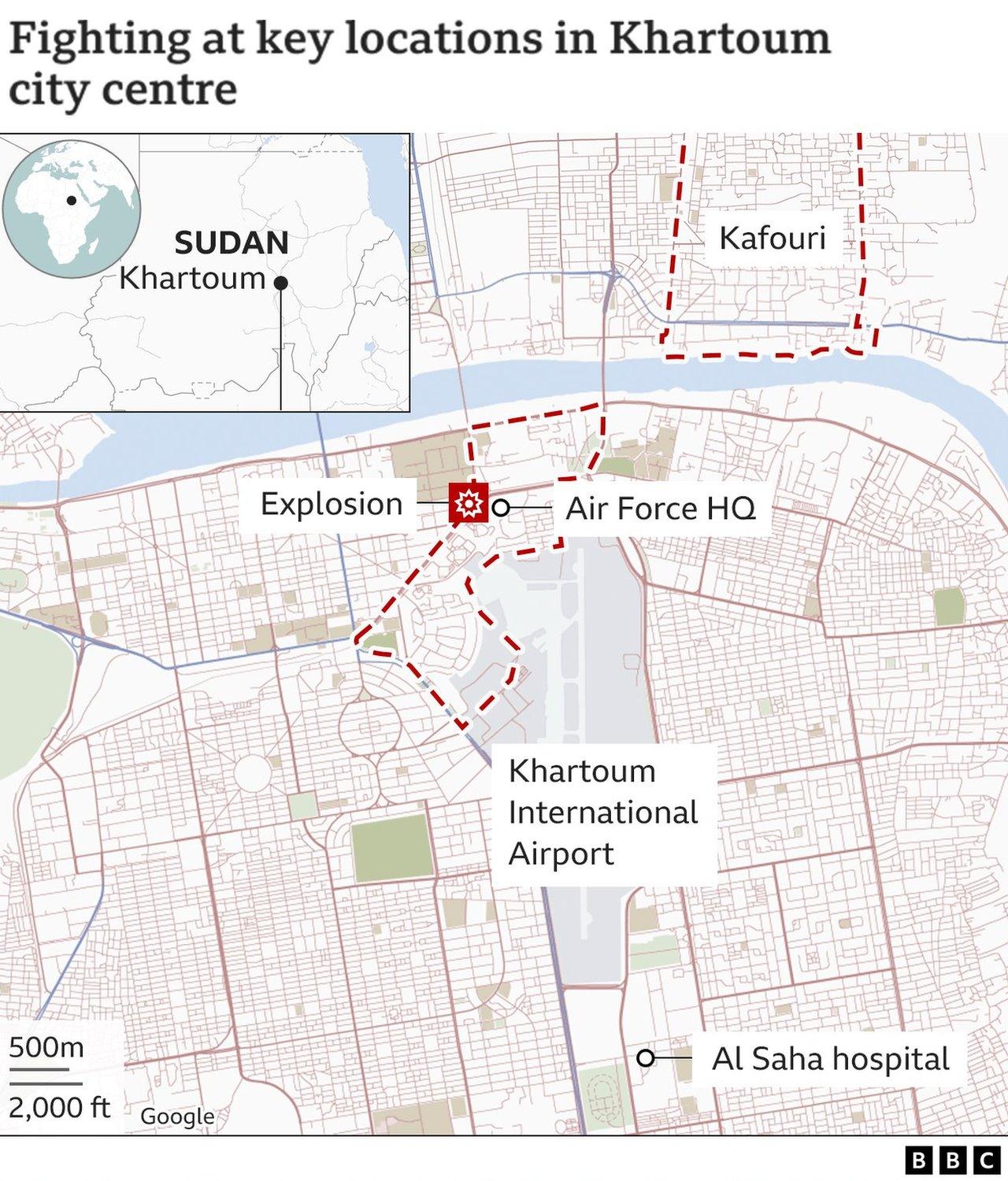
Another video, sent to the BBC this morning by a doctor, shows a hospital caught up in the conflict.
It claims to show RSF forces occupying part of the Al Saha hospital in Khartoum.
One image shows a patterned floor and brown marble which we were able to match with an existing image from the inside of this hospital. The uniforms match those worn by the RSF.
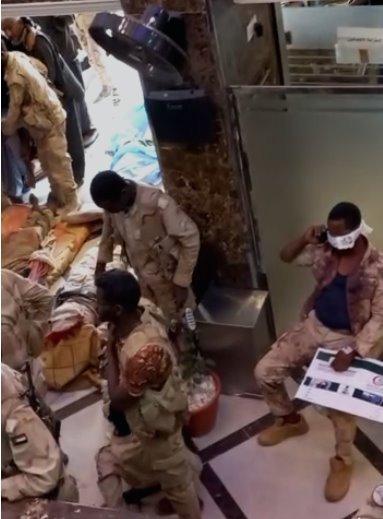
Video shows troops gathering inside the hospital
We spoke to an eyewitness who says he was at the hospital when RSF troops took it over at approximately 11:00 local time (12:00 BST) on Monday.
He says he was in the intensive care unit looking after his father when there were loud explosions which shook the hospital building.
"They (the RSF) forced all the patients out. Floors were filled up with RSF fighters and their cars were outside the hospital doors which made the ambulances very afraid to come near."
Another residential neighbourhood which has come under heavy fire is Kafouri, to the north of Khartoum International Airport.
Some of Khartoum's wealthiest residents live there, including the family of Sudan's ex-president Omar al-Bashir. It is also the site of several security compounds.
"It sounded like there was a thunderstorm," said one woman as she posted a video from her balcony near the airport in Khartoum at the weekend. The noise came from military helicopters flying low over residential tower blocks.
"We woke up and went outside - there were fighter jets. It just sounded like gunshots. There's just a lot of chaos going on. There was smoke everywhere."
Watch: Attack helicopter flying low over Sudan's Kafouri neighbourhood.
Khartoum airport is sandwiched between dense residential areas.
"I can see from my residence smoke coming out from some buildings," one man who lives close by told us. "I can hear blasts, bombs, I can see military planes."
He said a house near where he is staying was hit on Monday morning.
"It's now just rubble."
Satellite imagery from 16 April over Khartoum shows smoke rising from the airport and from some planes on fire on the runway.
Another satellite image taken the next day shows more of them destroyed on the runway.
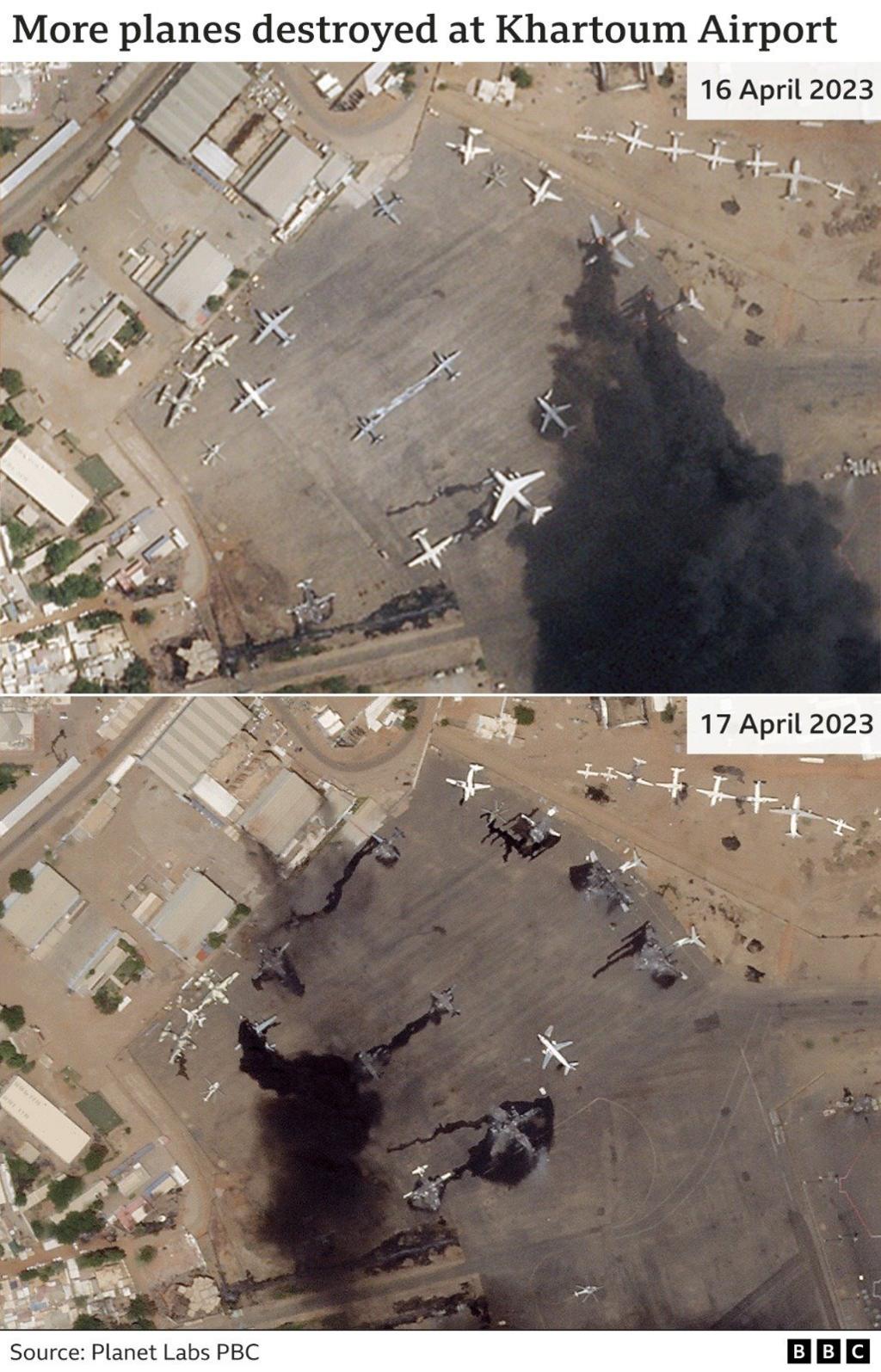
We've counted 19 planes and one helicopter damaged or destroyed at Khartoum airport, as well as another six planes elsewhere in the country.
Key infrastructure has also been hit, including Kobar Bridge, which is close to the airport and connects south and north Khartoum.
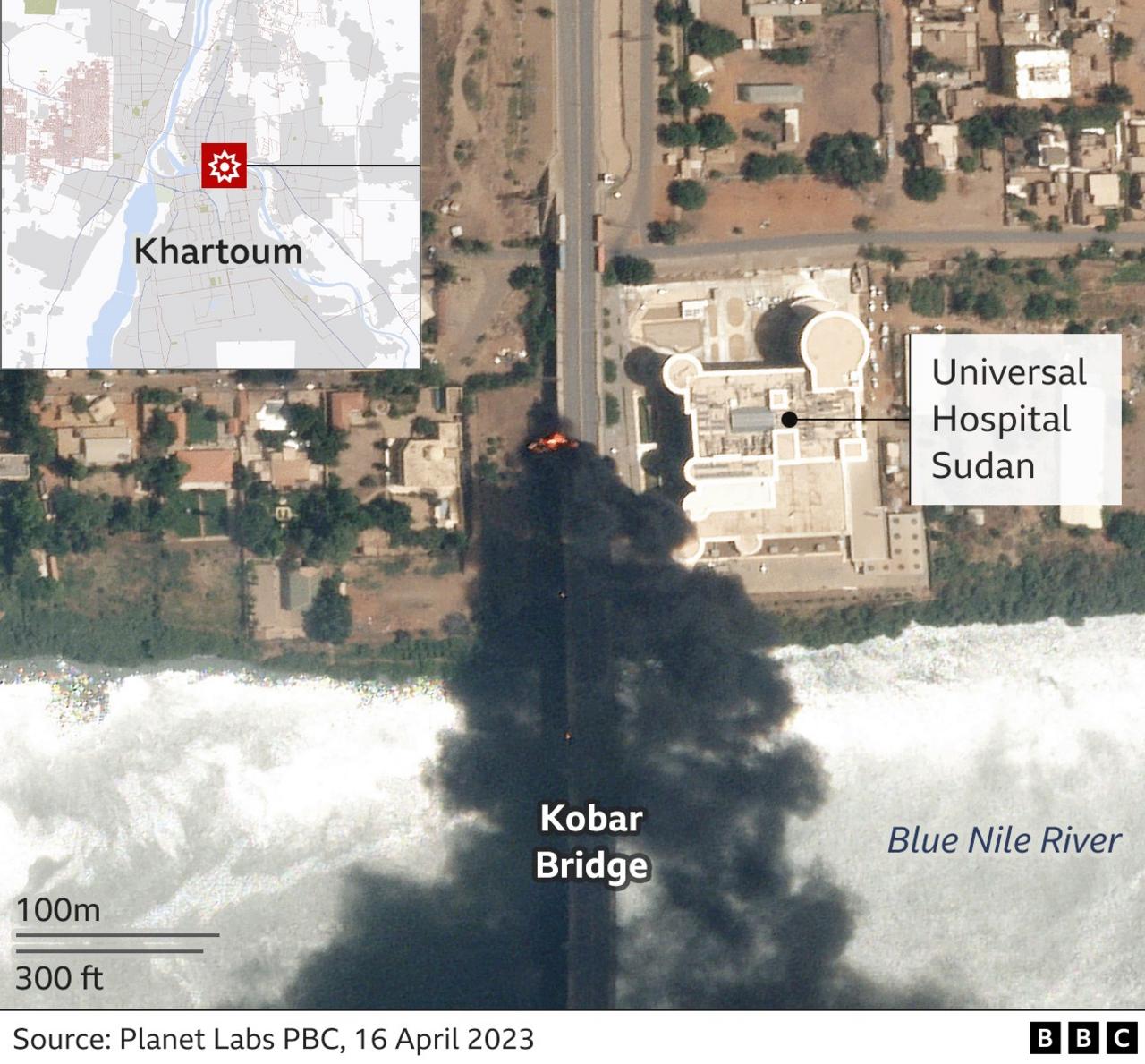
One eyewitness told us that this had cut off access to the Universal Hospital Sudan on the north side of the bridge.
The man, who visited the hospital at the weekend, told us: "They asked the sick and injured to leave the hospital at 10pm on Sunday, and the situation was difficult outside.
"They tried a lot to bring in other doctors from other hospitals but nobody can reach Universal Hospital. Ambulances are refusing to transport the injured and dead bodies."
There have been reports that several other hospitals in the capital have either been damaged or evacuated.
Additional reporting by Daniele Palumbo, Joshua Cheetham, Tom Edgington, Richard Irvine-Brown and Mohanad Hashim
Graphics by Erwan Rivault and Kate Gaynor
We are continuing to investigate video out of Khartoum.
- Published24 April 2023

- Published20 July 2019
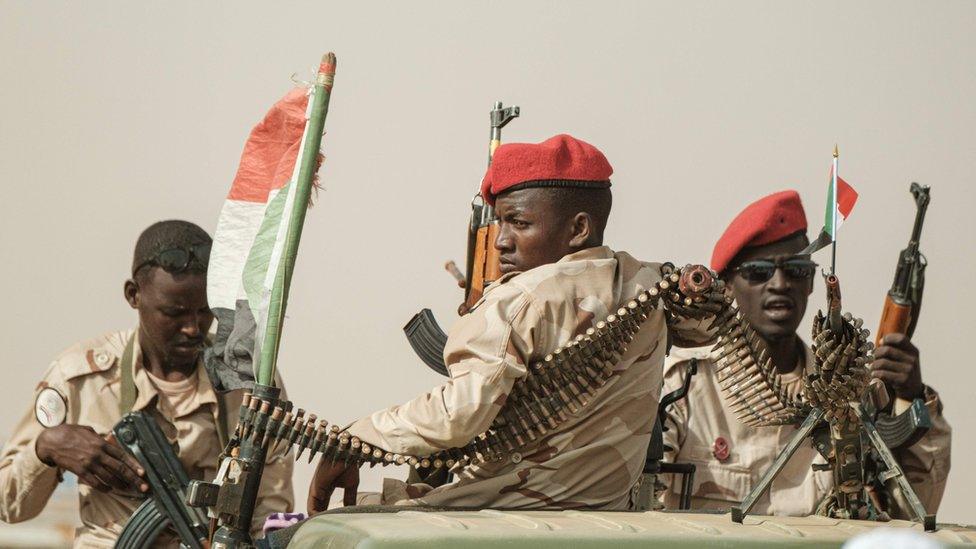
- Published5 June 2019
